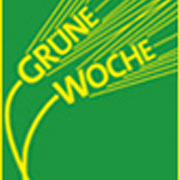
|
contents | europe | ||||
| Nature.tec: Energy Exhibition At The Green Week  nature.tec, a special bio-energy and renewables exhibition, will be taking place for the second time at the International Green Week (16 to 25 January). Following its successful debut in 2008, the trade associations taking part will be addressing visitors, experts, members of the press and politics in Hall 4.2. nature.tec's objective is to acquaint every kind of visitor with energy derived from natural raw materials. The focus is on exhibits and information which will offer an insight into the topic of bio-energy and renewable raw materials. Among the exhibits are an E85 motor, a bio-gas fermenter, and a Mustang from Fanta-Vier-Star Smudo that runs on bio-diesel. Even children can join in the fun. There will be an exciting children's corner where the little ones can have fun with drawings of farms and a large picture book. Visitors can also test their skills with the nature.tec picture cube. Shows and information events on the main stage will round off the programme nature.tec, a special bio-energy and renewables exhibition, will be taking place for the second time at the International Green Week (16 to 25 January). Following its successful debut in 2008, the trade associations taking part will be addressing visitors, experts, members of the press and politics in Hall 4.2. nature.tec's objective is to acquaint every kind of visitor with energy derived from natural raw materials. The focus is on exhibits and information which will offer an insight into the topic of bio-energy and renewable raw materials. Among the exhibits are an E85 motor, a bio-gas fermenter, and a Mustang from Fanta-Vier-Star Smudo that runs on bio-diesel. Even children can join in the fun. There will be an exciting children's corner where the little ones can have fun with drawings of farms and a large picture book. Visitors can also test their skills with the nature.tec picture cube. Shows and information events on the main stage will round off the programmeThe latest figures released by the trade agency Nachwachsende Rohstoffe e.V. (FNR) highlight the economic importance of renewable raw materials in Germany. In 2008 in Germany, crops mainly producing renewable raw materials were grown over an area of more than two million hectares, or 17% of farming land. What is more, 11.1 million hectares of woodland, comprising one third of the square area of Germany, supplied timber for industry and energy production. In 2007, bio-fuels represented the largest share of renewable energy resources, accounting for 41 per cent. The construction and operation of bio-energy facilities has returned more than ten billion euros. In 2007, the turnover from renewable energy resources was equal to approximately 25 billion euros. In the same year there were 249, 000 people working in this industry, 98,000 of whom (39 per cent) belonged to the bio-energy sector. According to FNR, the environment also benefits from these developments. Combusting or composting vegetable raw materials releases no more CO2 than they extract from the atmosphere during their growth phase. By contrast with fossil materials they are largely carbon neutral, effectively constituting a closed-loop material and energy cycle. Using them can help combat the escalating greenhouse effect and global climate change. In 2007, use of renewable resources reduced carbon emissions by 115 million tons, with bio-fuels making up 55 million tons (47%) of that figure. The nature.tec project is sponsored by Bundesverband BioEnergie e.V. (BBE), Fachverband Biogas e.V., Fachagentur Nachwachsende Rohstoffe e.V. (FNR), Institut für wirtschaftliche Ölheizung e.V. (IWO), Verband Landwirtschaftliche Biokraftstoffe e.V. (LAB), Union zur Förderung von Öl- und Proteinpflanzen e.V. (UFOP), and Verband der Deutschen Biokraftstoffindustrie e.V. (VDB) as well as Messe Berlin. The Federal Ministry of Food, Agriculture and Consumer Protection (BMELV) is promoting nature.tec. Attractive information stands organised by the project's sponsors, and numerous stands and exhibits by companies and institutions representing the renewable raw materials sector, which is a growth market, will be the focus of attention. write your comments about the article :: © 2008 Exhibition News :: home page |